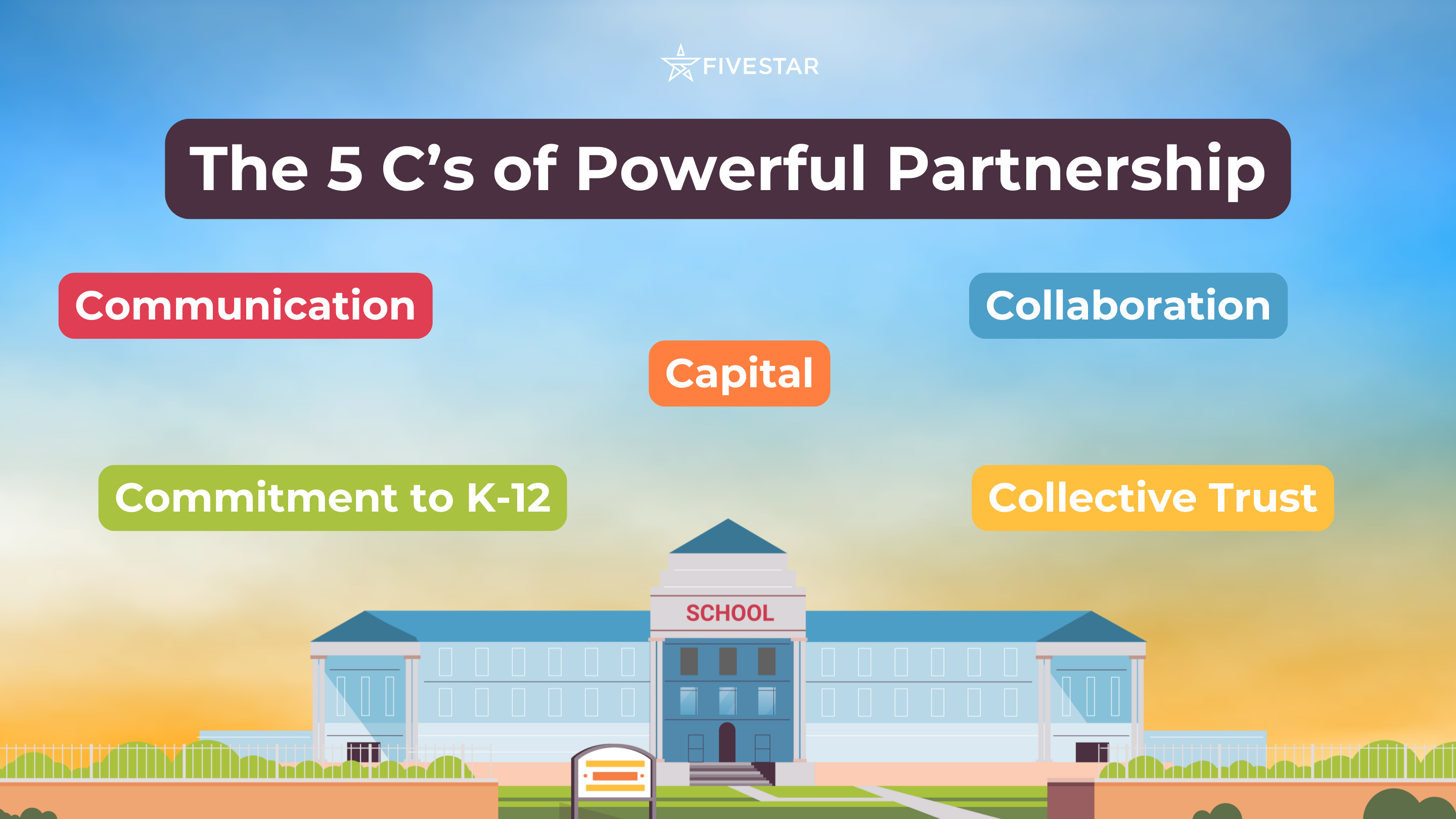Choosing the Right EdTech Partner: Key Questions Every Technology Leader Should Ask

In today's rapidly evolving educational landscape, technology has moved from a supplementary tool to an indispensable core of K-12 learning. For Chief Technology Officers and Technology Directors, selecting the right EdTech partners isn't just about procuring software or hardware; it's about forging strategic alliances that will shape the future of their school district. A true partnership goes beyond a transactional relationship, delving into shared vision, mutual support, and a commitment to student success.
But how do you identify these genuine partners amidst a crowded market? It starts with asking the right questions. Here, we delve into the “Five C’s” that every technology leader should explore to ensure they're building robust, sustainable partnerships.
Communication
Effective communication is the bedrock of any successful partnership. It's not just about getting timely responses to support tickets; it's about proactive engagement, transparency, and a willingness to listen.
Key Question for Communication: What are the people, processes, and technologies you use to ensure the highest quality of service?
A strong EdTech partner will have established channels for continuous feedback, not just annual surveys. They should demonstrate how your input directly influences product enhancements, feature development, and service improvements. Ideal partners also provide a variety of communication channels, such as text, phone, Slack, Google Workspace, or Microsoft O365.
Collaboration
True collaboration means working hand-in-hand to achieve shared goals. It's about understanding and adapting solutions to fit unique district needs and fostering an environment where innovation thrives.
Key Question for Collaboration: Describe your typical process for co-developing or customizing solutions based on specific district pedagogical goals or technical infrastructure requirements.
Beware of "one-size-fits-all" approaches. A collaborative partner will be open to customizing their offerings or co-developing new features. They should be able to articulate a straightforward process for engaging with your curriculum and IT teams, demonstrating flexibility and a commitment to ensuring the technology seamlessly integrates with your existing ecosystem and instructional practices.
Commitment to K-12 Schools
Many companies serve various sectors, but a genuine EdTech partner prioritizes the unique needs and nuances of K-12 education. This commitment extends beyond profit margins to a deep understanding of educational pedagogy, budgets, and the challenges faced by educators.
Key Question for Commitment to K-12 Schools: How does your company demonstrate a long-term commitment to the K-12 sector, specifically in terms of dedicated research, development, and advocacy for policies that benefit public education?
Look for companies that are actively involved in educational research, publish white papers on best practices, and participate in K-12 advocacy efforts. Their leadership should regularly speak at education conferences, and their product roadmap should clearly align with evolving educational standards and pedagogical trends, not just general technology advancements.
Capital
While you're investing your district's capital in their solutions, a strong partner also invests their own capital in the partnership's success, particularly in areas like research, development, and customer support.
Key Question for Capital: Beyond initial implementation, what ongoing financial and personnel investments does your company dedicate to ensuring the long-term success and continuous improvement of our partnership, including professional development, technical support and proof of concept?
This question aims to understand their commitment to your success beyond the initial sale. Do they invest in robust professional development programs for your teachers? Is there dedicated technical support that understands the intricacies of a school environment? Are there options for proof of concept to determine if the solution is ideal for your environment? Look for evidence of sustained investment in customer success, not just new product development.
Collective Trust
Ultimately, the most valuable asset in any partnership is trust. This collective trust is built on a track record of reliability, ethical practices, proof of success and a shared understanding of responsibilities.
Key Question for Collective Trust: Who are some specific K-12 schools with whom we could contact to provide authentic proof of the strength of your partnership?
It's not enough for a vendor to simply claim expertise; true partnership blossoms when both parties are confident in each other's commitment and capabilities. This mutual reliance fosters a more collaborative environment, leading to better outcomes and a more sustainable long-term relationship.
This question is paramount because it moves beyond theoretical claims to concrete evidence. A reputable EdTech partner should be eager to provide references from existing clients who can speak to their experiences. By directly engaging with these references, technology leaders can gain invaluable insights into the vendor's true performance, ethical conduct, and the reliability of their solutions, ensuring that the chosen partner is truly a trusted ally in their educational mission.
By asking these five-pointed questions, K-12 technology leaders can move beyond superficial discussions and truly assess an EdTech company's commitment to a genuine partnership. The right partner will not only provide innovative solutions but will also become an extension of your team, dedicated to the shared mission of empowering every student to succeed.




